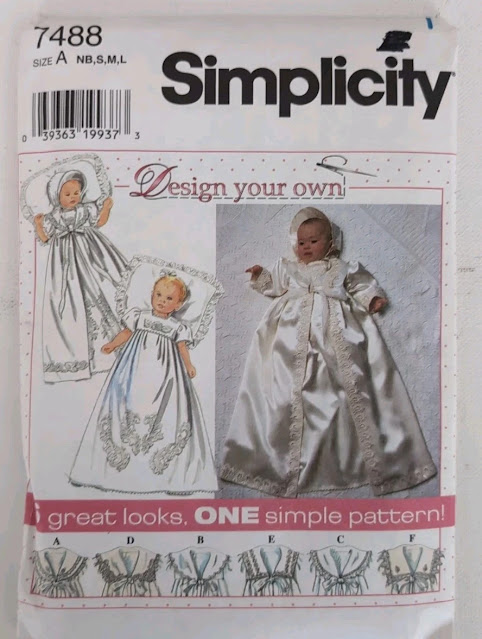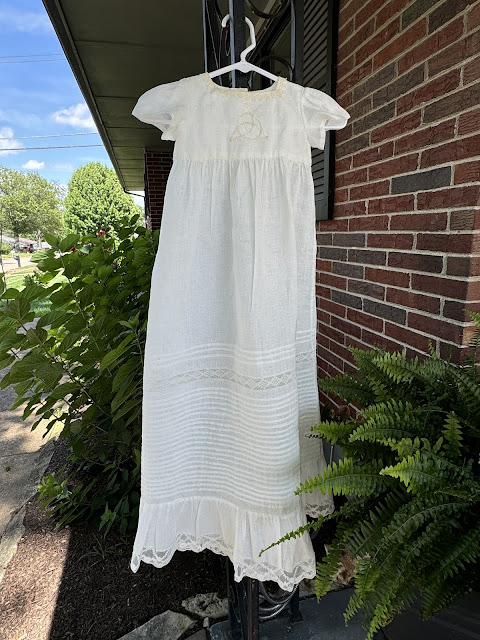The advent of analgesics in the late 19th century made it possible for most of us to quell ordinary daily physical pain...and sometimes even extraordinary physical pain. In time, a broad range of psychotropics brought us options to reduce or numb our mental and emotional pain as well. This age of pharmaceuticals is a blessing, is it not? Yet I can't help but wonder...what have we lost in this era of accessible, easy relief? When these substance interventions fail us - which they sometimes do - when the pain remains, do we even know how to live? Do we have the Resilience, Grit, or Perseverance to endure? Do we know how to bear up under that which seems unbearable?
Our modern experience of death is somewhat similar in that we remove the reality from ourselves as quickly as possible. We scurry the body off to a morgue where we don't have to see it. We hide it. We distance ourselves from it. We sterilize it. We clean it, apply makeup, dress it up, to make it as "undead" and realistic as possible before putting it on display. I recognize that, for some, these rituals carry symbolism of respect and dignity, or may represent an important step for others on the road to "closure" (if such a thing even exists), and for some, it even instills a sense of hope. I get it. But I wonder about the long term effects of beautifying the grotesque. Death is hideous. Generations who came before us knew this. They didn't have the option to escape the raw realities of death. The sight and smells of decay permeated their world, making it somewhat absurd to spin it as the gateway to a "better place." It isn't. It is creation coming undone. It's the wrenching apart of personhood - body and soul - which was created to be whole. It's not something to beautify, make clean, or soften with platitudes. Like a ring in a pig's snout, none of this changes the filth, the coldness, the darkness, the stench.
But pharmaceuticals and embalming aren't the only ways we anesthetize and soften the reality of life. We have grown accustomed to cleanliness, to whitewashing, to ease, in many facets of life. We hop in our cars for an effortless journey to the grocery store where very little exertion lands us a cart full of fresh and already-prepared food. We cook that food over a fire we summon with the push of a button, then tidy up with clean water that streams into the very room where the mess is. Our most foul excretions are immediately spirited away to the underground depths as if they never existed. Our facial blemishes are magically masked with any number of cosmetics. Clothes show up ready-to-wear in boxes dropped conveniently near our front door. When we soil them, machines clean them with relatively little effort on our part.
Don't misunderstand. I am not glorifying the past or the way things used to be. No rose-colored-glasses here. Hardship and difficulty can forge character, reveal courage, instill strength...but they also produce fatigue, pain, sickness, and discouragement. Progress - and I believe modern plumbing and cars and gas stoves and washing machines are examples of creative progress - has brought us many good gifts. But when we move forward without consideration of the impact on the body, soul, and psyche, we may do ourselves and our posterity a disservice by over-distancing ourselves from reality.
Since the Industrial Revolution, we have moved further and further from SOURCES of things. We are distanced from the land that produces our food. We are distanced from the bodies of water that keep us clean and hydrated. We are distanced from the mechanics of our machines. Indeed, as technology advances, more and more specialization is needed to understand the physical world we interact with. But as we abandon the source, we lose understanding of how our world works (see Matthew Crawford's wonderful philosophical musings on this in Shop Craft as Soul Craft and The World Beyond Your Head.). This distancing breeds unfamiliarity. We're losing connection with the created world. We are out of touch with the materiality, the physicality of our lives.
I suppose these shifts may allow us to embrace Meta as a natural next step. Zuckerberg, its creator, recently promoted the Metaverse as the "embodied internet" where you're "in the experience." Ironically, the very nature of this universe is a DISEMBODIED one...or perhaps it's a world of "embodied" ISOLATION. Here you can experience one another in an anesthetized environment where you won't have to smell another's sweat or stale breath, where you won't be confronted with real flaws of others or have yours exposed. You will never truly know or be known in Metaverse because you will always inhabit a fictionalized version of yourself alongside the fictionalized versions of another being, all staged in a fictionalized world. You can exit an interaction without explanation and blame a bad internet connection. You can project a feigned presence while remaining wholly distracted by a device or the real presence of another (sure we can do that now, but when we are physically present with another, we can at least SEE each other's distraction b/c we inhabit the same real space). The Meta experience claims that your avatar presence - which is an entirely fabricated idealized version of "you" - will allow a more "natural and vivid" experience with "the feeling of presence" made possible through "living 3D representations of you."
Here's the thing. So much of what we can do with new technology is SUPER cool. I'm blown away by what is being discovered, learned, built, and added to the world of our experiences. There are some amazing, redemptive, and FUN applications for these innovations! But I can't shake my discomfort with the language of "embodiment." As humans made in the image of a Trinitarian God (communal by nature) who took on flesh (embodied presence), we are designed to live and experience life in and through our flesh and bone bodies, not through a curated ethereal disembodied experience. In REAL life, being physically present with someone experiencing deep physical pain is gut-wrenching. It doesn't need "vivifying." It can't be escaped. The person in pain doesn't need the "feeling of presence" but ACTUAL presence. In a 3D universe, I can be "present" with you while you suffer and not FEEL your suffering. I can pretend to share in it without any consequence to my own person. And without the benefit of helping you bear that burden.
I'm reminded of this quote from Buechner's The Hungering Dark:
'No man is an island,' wrote Dr. Donne...'for whom the bell tolls it tolls for thee.' ...any man's death reminds us of our common destiny...our lives are linked together. But there is another truth...that every man IS an island. ...we speak not to reveal who we are but to CONCEAL who we are. Instead of showing ourselves as we truly are, we show ourselves as we believe others want us to be. We wear masks, and with practice we do it better and better, and they serve us well--except that it gets very lonely inside the mask, because inside the mask there is a person who both longs to be known and fears to be known.
The Metaverse has the potential to enlarge our islands and allow us to hide even more easily behind well-designed masks, entrenching us in our fear of being truly known.
There is no stopping the momentum of this innovation train. I simply hope we pause often to consider how we might be unintentionally swept away by transformative technologies without understanding their soul-impact. I hope we find courage, when necessary, to brace ourselves against the swelling tide of pressure to live as a counterfeit self in a counterfeit world, and to embrace the raw, gritty, dirty world of created matter and humans as the flawed flesh and bone humans we are.
--originally published by She's No Lady in January 2024















